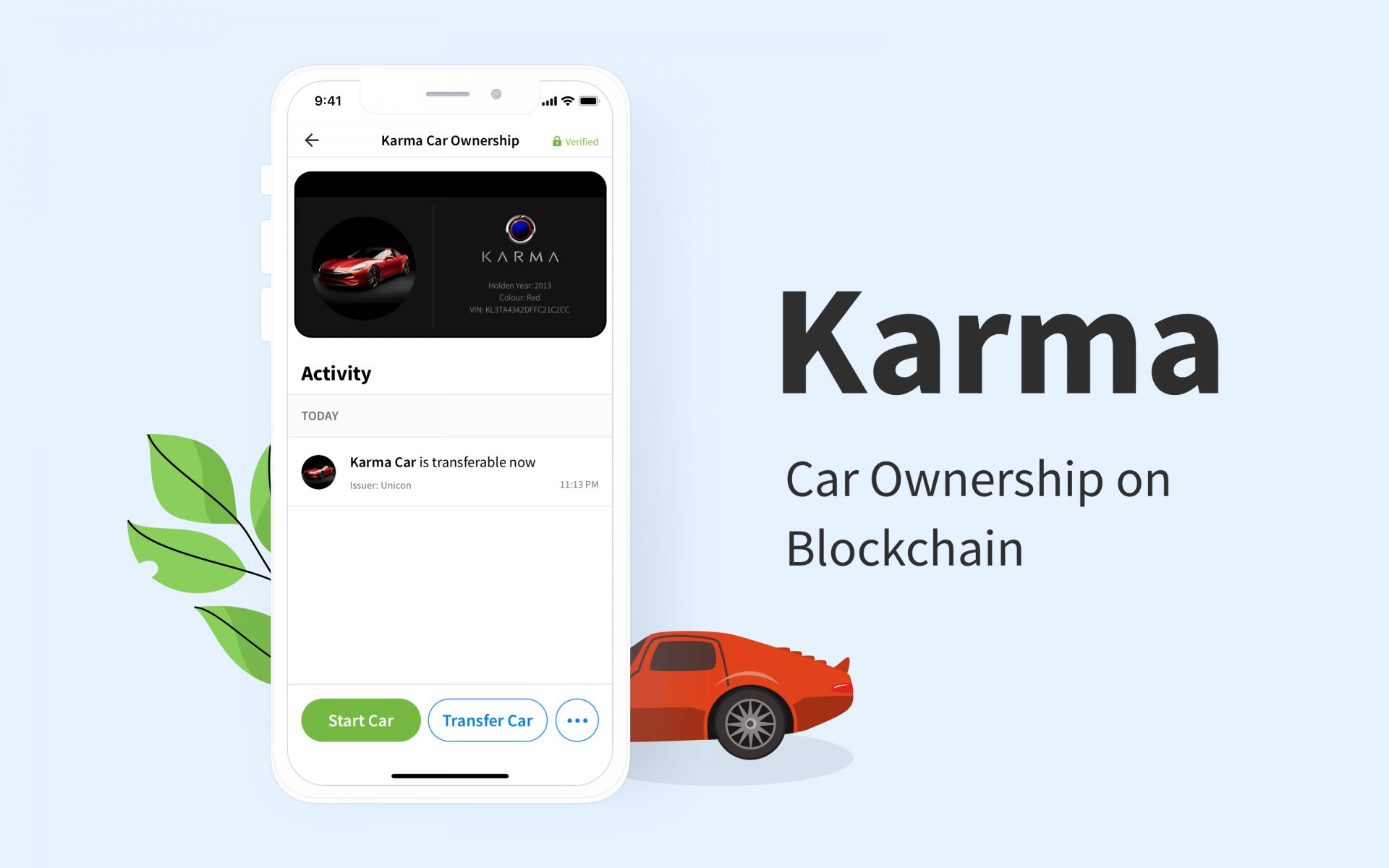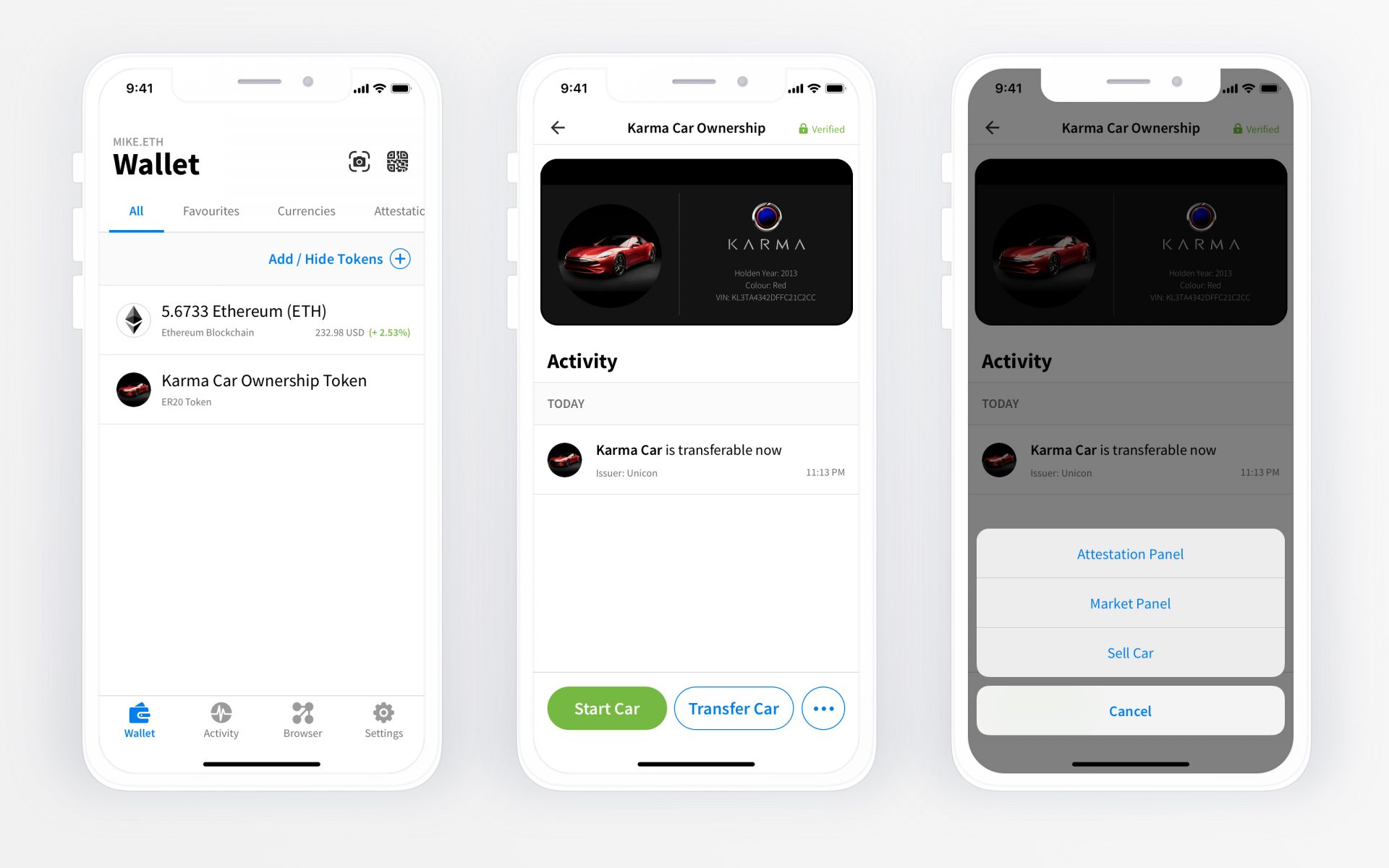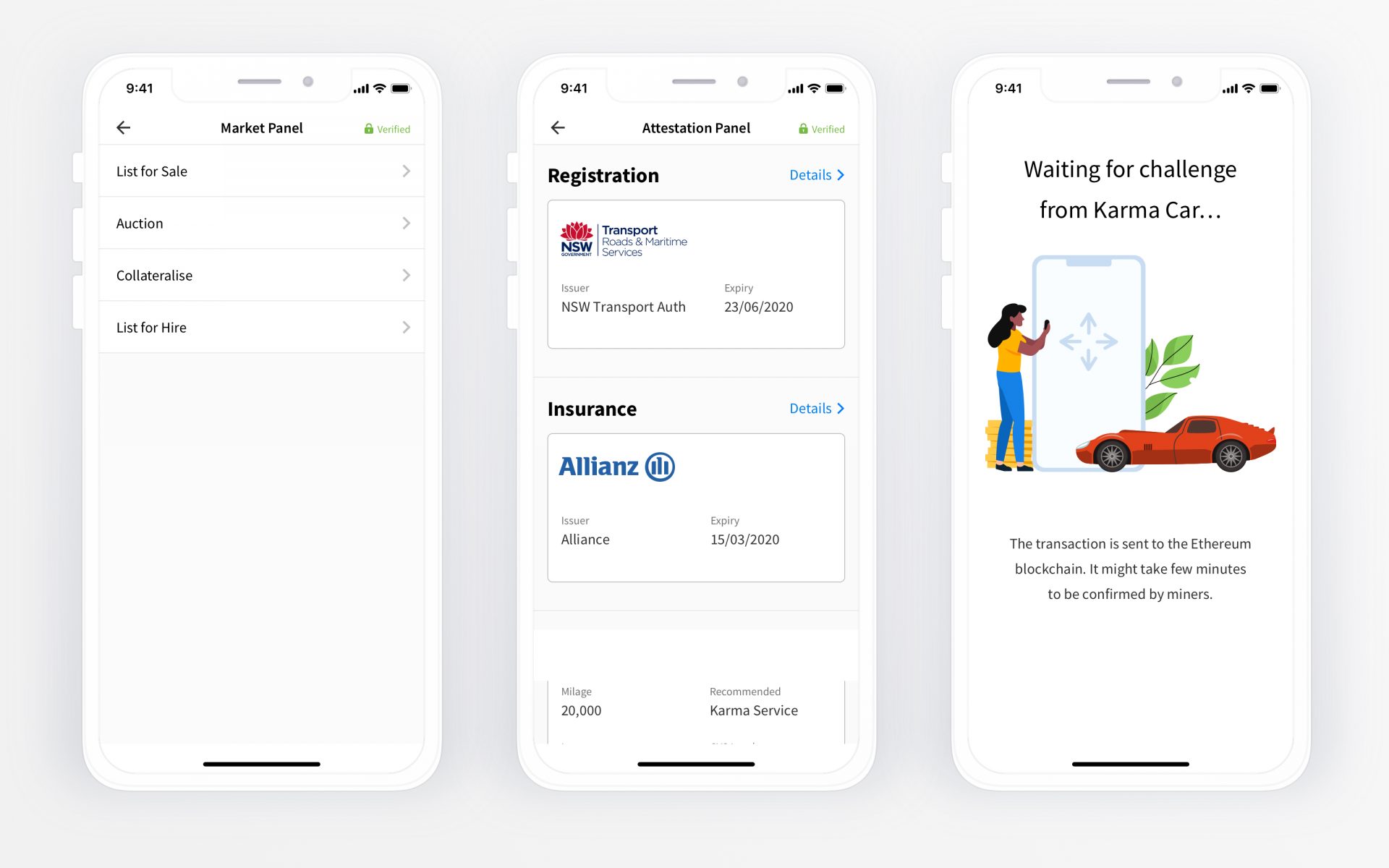Case Study: Car Ownership Token
Abstract: Luxury car maker based in US, Karma Automotive, leveraged blockchain technology in 2020 to re-imagine their car as a smart digital asset using blockchain technology.

Background
Through registering the car in blockchain and tokenizing its ownership, Karma Automotive aims to provide a futuristic car experience for their customer. The long term vision of the company is to use blockchain as the linchpin to create an ecosystem for all the entities in automotive industry such as financiers, insures, motor vehicle authorities of respective jurisdiction. Tokenizing car ownership opens the door to new use cases for the ‘digital key’ of the car for peer-to-peer sharing, service logging, fractional ownership etc.
Read: Learn how DeltaWallet can help your business
To test out these ideas, Karma Automotive conducted a hackathon and DeltaWallet was selected as winners. Based on the outcomes of the hackathon, both the parties collaborated further to tokenise car’s ownership and integration into their intelligent car systems.
The Pain Points
Today, the automotive industry is vast, complex and often disjointed
- Multiple parties with different interests and authorities
- No comprehensive view of the current state of the car to all the relevant stakeholders in the ecosystem
- Auto pilot and similar capabilities are making cars a smart asset that is connected to the internet, but with legacy paper based ownership
The Solution
A digital token, with unique identification tagging the car such as VIN Number, was created to create the digital representation of the ownership of the car. This token was enriched using TokenScript protocols to access the car and its telemetric systems.

This allows the owner of the car to hold the digital keys in any crypto wallet. The keys also allow the owner of the car to trigger functions such as lock and unlock doors, start the car, access the location etc.

The owner can also transfer the token to other users, for a specific period of time, or to sell tokens in a peer to peer fashion using decentralized exchanges such as OpenSea. The next steps for the organisations are to enable further users cases with other participants in the ecosystem and to test it with users before being rolled out in production cars.




